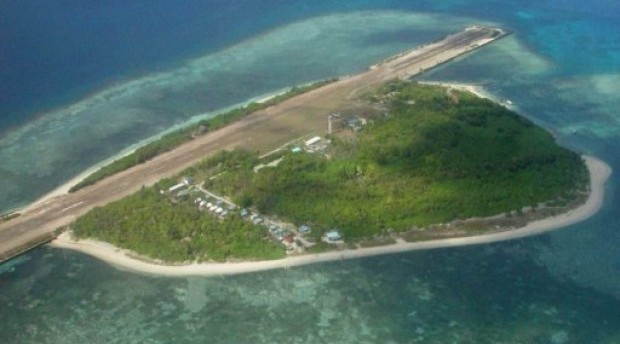
This undated photo handout released by the Kayalaan Municipal office on July 13, 2011 shows the island of Kalayaan, which means “Freedom” in the Filipino language, that was created in 1978 mainly to assert the Philippines’ claim to the disputed territory in the Spratlys, a chain of islets in the South China Sea. AFP FILE PHOTO
Malaysia Defense Minister Hishammuddin Hussein says solid trust between leaders and the military of respective nations is crucial in preventing differences from snowballing into unmanageable conflicts
The delay in resolving territorial disputes in the South China Sea region is worrying, said Defense Minister Hishammuddin Hussein.
Solid trust between leaders and the military of respective nations is therefore crucial in preventing the differences from snowballing into unmanageable conflicts, he said.
Hishammuddin was referring to the South China Sea issue, where Malaysia, the Philippines, Vietnam, Brunei and China have overlapping claims.
He said there would be possibilities of unintended accidents in the high sea and open sky when the problems drag on further, so the military of each country must be on their toes to prevent such a scenario.
“The level of trust between the militaries must be close, so you don’t end up in a situation that spirals into conflicts that we cannot control,” he said.
Hishammuddin was speaking to reporters here on the sidelines of Xiangshan Forum, a biennial event for security and defence dialogues.
Commenting on the United States’ decision to patrol within 12 nautical miles of the artificial islands built by China in the disputed energy-rich waters, Hishammuddin said he was briefed by the United States on this decision, and Malaysia would continue to engage with China on this issue.
“It is important for all 10 Asean nations to fully engage with both superpowers.
“There might be counteractions by major powers in the region, but sometimes it is beyond the control of small nations like Malaysia,” he said.
In his speech delivered during a plenary session at Xiangshan Forum yesterday, Hishammuddin said Malaysia was unwavering on its position to resolve the disputes peacefully through a multilateral platform.
“We remain convinced that a Code of Conduct is the best way to govern the competing claims to the waters and urge that consultations be intensified, to ensure the expeditious establishment of an effective COC,” he said.
He also spoke on the threats of IS and the significant role of the movement of moderation to combat extremism.
Hishammuddin told reporters that social media was now used in a never-before-seen approach to spread IS ideologies and conduct recruitments.
“Like it or not we have to monitor (the cyber space),” he said.
On battling cyber crime, Hishammuddin said Malaysia was working closely with countries such as the United States, Britain and China, which have advanced equipment for the task.
Hishammuddin concluded his four-day visit here Saturday after attending the China-Asean Defense Ministers’ Informal Meeting and the Xiangshan Forum.
RELATED STORIES
China proposes joint drills with Asean countries
Beijing tries to soothe West Philippine Sea jitters
RELATED VIDEOS

